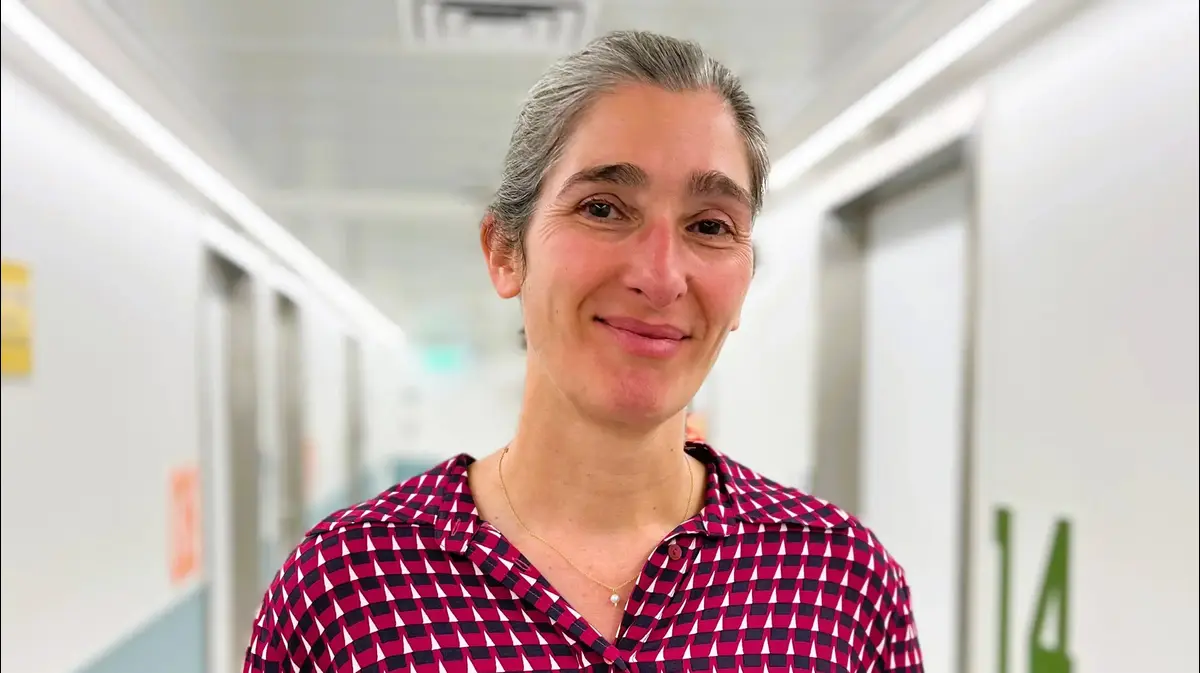Corona virus has also caused mental difficulty in many • How can we support a family member or a depressed friend, and how can we keep our children and parents healthy?
• The experts answer
Give a shoulder
Photography:
GettyImages
Much has been said about the mental aspects of the corona crisis, about tensions and anxieties that develop into crises and cross ages, from children and young people to adults and the elderly.
However, people differ from each other in their coping ability and level of sensitivity, and there are those in each family who will react a little harder than others, be more depressed, react with outbursts of anger or feel a loss of hope.
In these situations, the family members around them play an important part in supporting them and in trying to rescue them from the crisis.
The role of the "cheerleader" is also not simple, and it may sometimes weaken the cheerleaders themselves and transfer them to the districts of despair and despair.
How do you encourage family and friends in an effective and supportive way, and how do you manage to stay calm instead of sinking in with them?
"Many studies suggest that the existence of social support is one of the most important factors influencing the ability to deal with emotional distress," says Dr. Shiri Daniels, National Professional Director of ARN and author of The Power of Listening - How to Help Those Around You in Time Emotional distress and crisis. "
"The most significant gift we can give to those around us in distress is the gift of listening, which creates partnership and reciprocity and allows us to have a conversation out of a genuine desire to get closer."
In order to do this effectively, we must first and foremost put aside judgment and criticism, and even stop giving advice or recommendations.
Dr. Daniels suggests listening to a person and telling them that he is not alone and that you are standing by his side. “Keep calm and avoid excessive emotional reactions and anxiety manifestations.
Allow a person to tell about events and people in his life according to his will and pace.
The very act of speaking and the emotional ventilation can moderate and lower the level of distress. "
You can encourage people to engage in meaningful activities that they have enjoyed in the past, such as listening to music, creative, cultural, social or physical activities, and establish healthy and open communication that will encourage them to approach you whenever they feel threatened, stressed or anxious.
Dr. Daniels also offers you, in the role of cheerleaders, to mobilize your own circles of support. “It is not easy to watch our loved ones suffer and ache.
So share your feelings with others so that you can be available to the person without neglecting your needs.
Also, encourage the person to seek professional advice when needed that meets his or her needs. "
An optimistic message for children
The corona crisis has and will continue to have difficult emotional and social consequences for children and adolescents, for whom a social framework is particularly critical.
Here the listening and inclusion of the parents is especially important, and the children should be encouraged to share their feelings with you and tell them that you are always here for them and that you will get through it together.
They should be allowed to express concerns, and not dismiss or dwarf them.
"Focus badly on what is lacking. On what can be done and less on what is avoided. Deliver an optimistic message and avoid statements that express despair and hopelessness," says Dr. Daniels, noting that children who show persistent and extreme reactions should be monitored and, if necessary, sought help. profession.
One of the most prevalent distress among children is related to the management of studies at Zoom.
Sarit Tagansky, a doctor of educational psychology from the Function Center, says that more than once the zoom causes children, especially those with ADHD, to have tantrums to the point of wanting to break the computer.
"It's an outburst of anger towards the parents, a feeling of anger at the whole world or a preoccupation with food non-stop. My recommendation to parents of children in such a situation is to allow them to stop learning zoom, because the damage could be severe."
Also, in many families the children stay at home during the day and the parents go out to work and expect the children to keep an agenda.
The children are unable to do so, and then they become filled with anger towards themselves and towards the parents.
"The recommendation for parents is to give children homework life skills assignments. Allow them to watch educational movies or nature movies and give them tasks like cooking, folding laundry and home responsibilities. I tell parents that this year is lost academically and socially, so stop chasing what the child "Educationally, we need to make room for the emotional side. Encourage sports, volunteering, teaching family commitment and personal commitment."
Regarding small children, Dr. Tagansky recommends brushing children in the shower with a slightly hard sponge (loofah), an action that relaxes the body. "It is recommended to tell children after the shower to lie on the bed in a room on their backs, put their hands next to their bodies and imagine what they want to happen.
In addition, it is important to remember that loneliness causes children and teenagers a very low self-esteem, so it is highly recommended to take time off and do regular walks in the park with them, joint bike rides and friends' meetings in the sun. "
The third age
The elderly were undoubtedly the main victims of this crisis, being a population at risk that was isolated and forced to close at home for many, many months.
Now they are the first to see the light at the end of the tunnel and get vaccinated, but even this is accompanied by many concerns, and it will be some time before they can hug again with children and grandchildren without fear and return to that distant routine of life, world trips, pampering cruises, cultural performances and meetings Social.
Sahar, which provides free online assistance and listening to all age groups, notes that since the beginning of the Corona crisis, there has been a 35 percent increase in inquiries to the association's online chat line, but among seniors there has been an increase of more than 300 percent. In inquiries, the association assists through written conversations in chat, e-mail, online support groups and through a lot of information on the site sahar.org.il
Luna Ben Dayan, social worker and professional director of the Sahar Association, says that "the feeling of many adults during the Corona period is that no one sees them and that they have become transparent, so it is important to make them permanent anchors, ask them what time is convenient for us to have a regular conversation , And stand by it.
This creates for them a positive expectation to have a conversation with the son or granddaughter.
Offer them common interests for you, such as watching a TV series or reading a shared book, and schedule a phone call in which you will talk about the book or episode that was broadcast.
A person who feels significant feels less lonely. "
She said, "The lack of contact is difficult for everyone, and sometimes making a challah with a written greeting and laying outside the door can be a small gesture that reminds parents or older grandparents that they are important to us and that we think about them even when they are not with us. "It's about creating a regular routine that produces thinking about the other, not a one-time thing."








/cloudfront-eu-central-1.images.arcpublishing.com/prisa/S7ERVSCT4FUVX6R7TUVBDNTH5Y.jpg)



